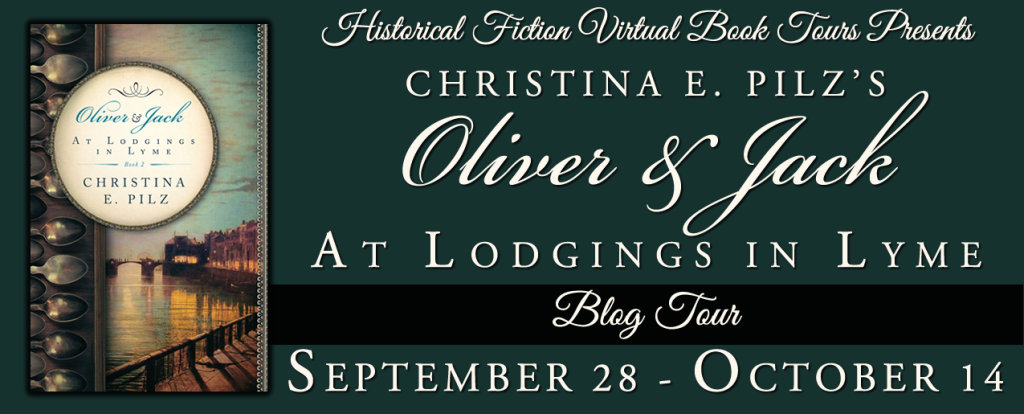I have a giveaway going on as well, so be sure to enter here!
Boys Kissing Boys In 1846 And The Trouble They Could Get Into
 |
| Jack |
 |
| Oliver |
So here’s what I know, or believe I have pinned down, about what my characters are risking by being in love with each other, and by celebrating that love with carnal relations.
The first problem is not just that Oliver and Jack are having intimate and passionate sexy-fun-times, it is that, in addition, they both have shady activities in their respective resumes.
 |
| Pickpocket |
As for Oliver Twist, he is an orphan, to be sure, but he is the son of a rich gentleman, Edwin Leeford, and a lady, Agnes Fleming. He stands to inherit 3,000 pounds upon reaching the age of twenty-one. But that is years away, and so Oliver must either get a job, or hit the streets with Jack. Early on in the series, he messed up the job he had, and is supported by odd jobs and Jack’s talent at picking pockets.
Since he doesn’t have a fixed address or any notable and continuous employment, he too, could be arrested for being a rogue and a vagabond, for which he could be held for several month’s hard labor. For Oliver, it could also get much worse, if the law ever able to connect him to a particular breaking and entering job for a certain townhome on Doughty Lane, or perhaps his old boss takes it on to press full charges on Oliver for assault and battery.
That is not to say, as much as it might sound, that Oliver and Jack have been going around willy-nilly breaking the law and laughing off the consequences. Hopefully in my books I’ve established that these acts do have consequences, even if my boys don’t go to jail for them. (Well, Oliver went to Newgate, but the charges, luckily, were dismissed.) But in spite of their luck at avoiding arrest and prosecution for various and sundry crimes of no one would approve, the most dangerously illegal thing that Oliver and Jack get up to is loving each other.
 |
Criminal courts for young offenders |
 |
| Hanging at Newgate Prison |
 |
| Sodimitical Intent |
According to The Old Bailey records, sodomitical intent was considered a misdemeanor, which could be punishable by a fine (in lieu of branding), whipping (by this time private, within the walls of the prison, rather than public), the pillory (abolished in 1837), or imprisonment (could take a number of forms and last a variety of months or years). The courts did take care to get evidence, because they discovered that accusations of sodimitical intent could be used for coercion and blackmail.
 |
| Corporal Punishment |
Though, if you were to look up the growth in birth rates at this time, you would see that in 1801, there were 8.9 million people in England, which grew to 15.9 million in 1841, which was an increase of 44%, so SOMEONE was having sex. As well, if you count the number of prostitutes in London at the time, they grew from 6,731 in 1839 to 9,404 in 1841, which is an increase of 33% in just two years, so it’s easy to see that the whole notion of chastity in Victorian times was one big sham.
In addition to the legal ramifications if Oliver and Jack were caught kissing, there was the social and religious stigma attached to homosexuality.
From the Behavior and Not a Person site, I found a marvelous background on how homosexuality was defined as a moral sin. And, because of King Henry VIII and The Buggery Act of 1533, (which defined buggery as “unnatural sexual act against the will of God and man”) if you got caught doing it “per anum,” you got the death penalty. In spite of the fact that The Buggery Act was repealed and modified a number of times, it still retained a mental permanency on the culture as being a Bad Thing. So as you can imagine, not only could dear Oliver and Jack have all kinds of legal trouble if caught kissing, they would also face the wrath of God, and the wrath of any friends or relatives that might be super church-going.
Having been brought up in a den of thieves, Jack probably couldn’t give a rat’s rooty-toot about anything anybody might say about him being together with Oliver. Which makes Jack a much more easy-going soul about the whole thing, and a pleasure to write about.
As for Oliver, the social stigma of what he and Jack are to each other, and the kind of love that they share, is probably almost too much for him to bear. Or at least you would think so, based on the fact that he was raised on a baby farm for nine years and spent six to nine months (depending on how you count the timeline in Oliver Twist by Charles Dickens) at a workhouse—and all of that time under the tutelage and care of people who were supposed to be Good Christians.
However, I always remember the fact that, upon being asked by the Board of Directors of the workhouse where he is about to be admitted, if he says his prayers every night, Oliver replies yes, even though he has no idea what the board is talking about because nobody has ever taught him how to pray.
Nowhere in the book Oliver Twist does Oliver ever go to church, except perhaps there might be some reference to it at the end of the book, when he’s 12. At that point, I think Oliver would have enjoyed the peace and quiet of a country church, but I do not believe that he would have absorbed much of Christian doctrine, except perhaps enough to look and act pious when it was expected of him.
To put it another way, he would have acted pious because it was the fashion to do so. Otherwise I cannot explain him falling in to Jack’s arms in 1846 with hardly a protestation! Because that is what he does. Jack is patient and kind and he feeds Oliver, which Oliver is a sucker for, and after much flirting, it is Oliver who makes the first move. Every now and then, I feel as though I should have had Oliver react in horror at what Jack suggests they do together, but somehow it never felt right. Which results in a character who sometimes wonders if he should be more aghast at how he feels about his beloved Jack. And that makes Oliver a very interesting and complex to write about.
About the Book
Oliver & Jack At Lodgings in Lyme (Fagin's Boy, Book 2) by Christina E. Pilz
Publication Date: June 14, 2015
Blue Rain Press
eBook & Paperback; 450 Pages
Genre: Historical/LGBT/M/M Romance
An ex-apprentice and his street thief companion flee the dangers of Victorian London and the threat of the hangman’s noose in search of family and the promise of a better life.
After Oliver Twist commits murder to protect Jack Dawkins (The Artful Dodger), both must flee London’s familiar but dangerous environs for safety elsewhere. Together they travel to Lyme Regis in the hopes of finding Oliver’s family. Along the way, Jack becomes gravely ill and Oliver is forced to perform manual labor to pay for the doctor’s bills.
While Oliver struggles to balance his need for respectability with his growing love for Jack, Jack becomes disenchanted with the staid nature of village life and his inability to practice his trade. But in spite of their personal struggles, and in the face of dire circumstances, they discover the depth of their love for each other.
 About the Author
About the Author
Christina was born in Waco, Texas in 1962. After living on a variety of air force bases, in 1972 her Dad retired and the family moved to Boulder, Colorado. There amidst the clear, dry air of the high plains, as the moss started to grow beneath her feet, her love for historical fiction began with a classroom reading of Little House on the Prairie by Laura Ingalls Wilder.She attended a variety of community colleges (Tacoma Community College) and state universities (UNC-Greeley, CU-Boulder, CU-Denver), and finally found her career in technical writing, which, between layoffs, she has been doing for 18 years. During that time, her love for historical fiction and old-fashioned objects, ideas, and eras has never waned.
In addition to writing, her interests include road trips around the U.S. and frequent flights to England, where she eats fish and chips, drinks hard cider, and listens to the voices in the pub around her. She also loves coffee shops, mountain sunsets, prairie storms, and the smell of lavender. She is a staunch supporter of the Oxford comma.
Blog Tour Schedule
Monday, September 28Spotlight & Giveaway at Passages to the Past
Tuesday, September 29
Review at Bibliotica
Spotlight at I Heart Reading
Wednesday, September 30
Spotlight & Giveaway at Teddy Rose Book Reviews Plus More
Friday, October 1
Spotlight at Book Nerd
Monday, October 5
Review & Giveaway at Peeking Between the Pages
Tuesday, October 6
Review at Svetlana's Reads and Views
Spotlight at A Literary Vacation
Friday, October 9
Spotlight at History Undressed
Tuesday, October 13
Spotlight at CelticLady's Reviews
Wednesday, October 14
Review at Broken Teepee


















I really enjoyed Fagin's Boy. I was so excited to learn, that you have written a trilogy.Your writing makes me think, that I am reading the continuation of Dicken's original story.
ReplyDelete